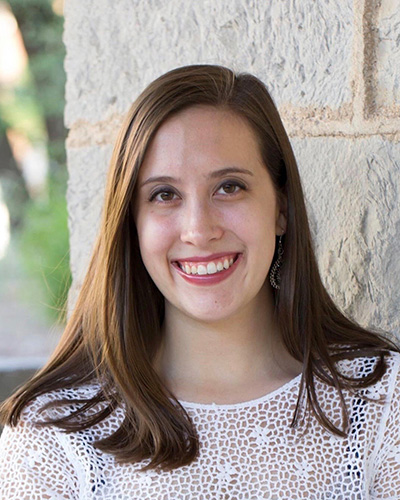
What influenced your decision (personal and professional) to become a scientist in this field?
I've always had a curiosity for science and upon learning more about neuroscience and the brain, I fell in love with its intersection between biology and psychology. Growing up I experienced firsthand how aging and devastating injuries like stroke and traumatic brain injury can impact not only the patients themselves, but entire families. These events drove my curiosity to investigate ways to help patients and families stay connected and improve after experiencing acute injury or age-related disease. After becoming a NIH MARC trainee at my undergraduate institution, I was able to visualize my future as an underrepresented scientist and use my experience to mentor others who may have a set idea of what a scientist can be or should look like.
What are your greatest achievements thus far?
While I am very happy with the progress I have made in my scientific training, one of my biggest accomplishments has been using my position in the Alliance for Diversity in Science and Engineering to push for change in our culture. Working with several other student leaders of color, we have been able to work with the administration to make progress towards inclusivity and support for underrepresented students.
What do you hope to accomplish in the next 10 years?
After completing my graduate training, I plan to seek postdoctoral fellowship training centered on basic molecular and translational research to identify therapeutic targets for neurodegenerative disease, particularly those involving neuroinflammation. Following my postdoc, I plan on applying for science policy specific fellowships and working to improve the connection between policymakers and scientists.
What were the biggest professional obstacles you had to overcome? Did you ever have the impression that it would be easier/harder if you were male?
One of the biggest obstacles I faced early on was imposter syndrome. Like many other students getting started in science, I felt like I didn't belong and was only where I was because I was filling a quota. While there were some of my peers who perpetuated this with their own biases and comments, I was able to learn how to find a supportive network of friends and mentors that gave me a sense of belonging and confidence in my abilities as a scientist. At times when I experienced microaggressions and comments about women in STEM, I did feel that people would take me more seriously or believe I was more confident if I was a man. This showed me that even some of the most educated people I've met still need to unlearn years of implicit biases against women in science, which requires hard and honest conversations to be had with scientists as all levels.
Do you serve on any committees/hold leadership positions within and outside the U of R? What is your impression of being a female leader in this environment?
Currently I serve on committees within our department, including the student admissions and retreat committees, as Vice President of U of R's chapter of the Alliance for Diversity in Science and Engineering, as a SMD Alumni Ambassador, and a founding member of a new Society for the Advancement of Chicanos/Hispanics and Native Americans in Science chapter. In these committees and groups, I have felt welcome as a female leader and member as a majority of these are student led organizations where we are equals.
In your opinion, which changes are needed in your field, in academia, and in science in general to be more attractive to women+ in neuroscience and possible future scientists?
In general, while loss of women and people of color in STEM is thought of as a pipeline issue, I rather see it as a retention issue. When women and underrepresented students don't see women or people of color in faculty positions, they can feel as if this is not attainable or a welcoming environment to them. So lack of mentorship by women in academia can lead to women leaving for areas where they feel more support and equality. I would suggest to women starting out their scientific careers to try to find groups like URWINS or connect directly to women faculty to have a support structure in place to answer questions and offer guidance in their journey.